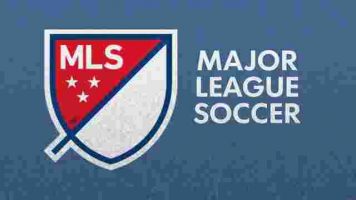
Yet again, a bunch of rich people are convincing a city government to give them tens of millions of dollars in tax breaks so they can have their own sports franchise. The city is St. Louis, the sport is soccer, and the losers will be the taxpayers. Danny Wicentowski has the story in the Riverfront Times.
When I posted this link on my Facebook page, it immediately drew comments like these:
Most St Louisans want the mls [sic] to come here. So what if they get some tax breaks? They’re fronting all the money for the construction. And it’s going to create jobs and add commerce to our region.
Stadium is being built with private funds. They are getting tax breaks just like the Cards and Blues. This is a win for the city considering the land they are biulding [sic] on has sat for years.
That whole “creates jobs and adds commerce” lie has been debunked time and again by economists who did the actual math, yet politicians fall for it every time. Why do you and I have to pay property taxes on our homes (and cars) but sports team owners don’t? Don’t we contribute to the whole jobs-and-commerce thing?
As for “most St. Louisans want the MLS to come here,” how could you possibly know that, as there hasn’t been a single referendum on the question? And using the Cards and Blues as examples doesn’t help the argument — I was against those ripoffs, too. Why do we always fall for deals that help billionaires, yet reject proposals that will actually accrue to the public good? Oh, yeah, because we can buy and wear their jerseys!
Not sure which economists you’re referring to, Paul. The majority of economists would disagree with your assertion. Not to mention you could absolutely feel the economic damage when the rams left. I’m not for publicly funded stadiums that will be obsolete before they are paid for, but this is private money.
It took me ten seconds to Google this, from a report on The Economics Of Subsidizing Sports Stadiums by the Federal Reserve Bank Of St. Louis:
“In spite of all of these economic arguments, economists generally oppose subsidizing professional sports stadiums. When surveyed, 86 percent of economists agreed that “local and state governments in the U.S. should eliminate subsidies to professional sports franchises.”
Perhaps economists just do not like sports? Actually, many economists love professional sports—including former Federal Reserve Chair Ben Bernanke, an ardent Washington Nationals fan. Rather, it is the provision of taxpayer money in the form of subsidies that economists generally oppose. In a 2017 poll, 83 percent of the economists surveyed agreed that “Providing state and local subsidies to build stadiums for professional sports teams is likely to cost the relevant taxpayers more than any local economic benefits that are generated.”
In their book, Sports, Jobs, and Taxes, Roger Noll and Andrew Zimbalist present a comprehensive review of stadium investments. In all cases, they find a new sports facility to have extremely small (or negative) effects on overall economic activity and employment. Furthermore, they were unable to find any facilities that had a reasonable return on investment. Sports economist Michael Leeds suggests that professional sports have very little economic impact, noting that a baseball team (with 81 regular-season home games per year) “has about the same impact on a community as a midsize department store.” His research suggests that if every professional sports team in Chicago (including the Cubs, White Sox, Bears, Bulls, and Blackhawks) were to suddenly disappear, the economic impact on Chicago would be a fraction of 1 percent.”
Another comment:
The tax breaks are on real estate that has been sitting idle and has not generated property taxes for decades, and on tickets being purchased by attendees of the games. There’s only a net gain here. Otherwise, the land continues to sit empty.
Those tickets should be taxed just like any other entertainment dollars (movies, concerts, etc.), with the funds going into the city coffers. What you’re getting instead is zero replacing zero. That’s not a win.
You have people spending money there in other ways around the stadium, and you have a boost in civic pride and national attention.
The money people spend around the stadium is just money they would have spent elsewhere. Again, no net gain. As for civic pride, I’m proud of my city when it’s well run and not at the mercy of rich people just trying to get richer on the backs of the rest of us.
“Yet reject proposals that will actually accrue to the public good.” Cite three examples, please.
Tax hikes to pay teachers more. Tax hikes to pay firefighters more. Tax hikes to pay police more. Subsidizing renewable energy for homes and cars. Not underwriting tax breaks for projects like Ballpark Village that killed local small businesses in that part of downtown St. Louis.
Are you not a big sports fan?
